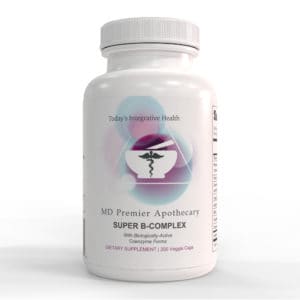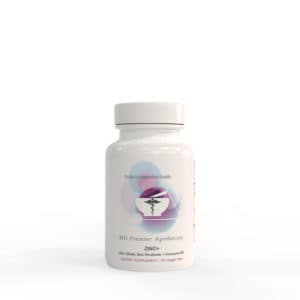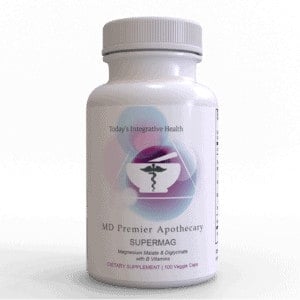Out of all the organs in your body, the brain is the most complex and as we age, our brain health continually needs nourishment. It is responsible for controlling executive functions that include motivation, creativity, memory, and focus. In order to function properly, the brain requires many different nutrients.
As people age they may notice a decline in cognitive function, but there are plenty of things you can do to keep your brain functioning at full capacity. Developmental disorders, psychiatric disorders, and cognitive decline have all been linked to nutritional deficiencies.
The good news is that studies have shown that an increase in the intake of brain-supporting minerals can improve certain aspects of cognitive function.
Supplementing your diet with minerals to improve brain processes and encourage long-term brain health can be an important option for people of all ages. While there are many vitamins and minerals that can give your brain health a boost, we are going to focus on the main five.
The Main 5 Minerals to Support Brain Health
Magnesium, zinc, iodine, potassium, and copper all play an important role in your overall health, but are vital for the brain to function properly. In conjunction with B vitamins, these minerals are another part of brain savers.
All of these minerals are sourced directly from the earth and are mainly absorbed by fruits and vegetables as they grow in soil. While vitamins get the most credit for supporting our health, these important minerals play a much less credited role.
Minerals control hydration levels, power our metabolism, and regulate nerve transmission. When minerals are adequately concentrated, they provide the essentials for optimal brain function.
Magnesium
Magnesium is critical for the proper functioning of your autonomic nervous system. It is found in every cell of your body, and is required for each cell to function properly. It helps to convert food into energy, creates new proteins from amino acids, and helps to create and repair RNA and DNA.
It also aids in muscle relaxation and contraction. As far as brain health, it also helps to regulate neurotransmitters, which are responsible for sending messages throughout your nervous system and brain.
A low level of magnesium in the body may also contribute to depression and anxiety. There are many different forms of magnesium, and choosing a magnesium such as magnesium l-threonate can be a great choice for brain health. It is the only kind that has been proven to increase magnesium levels in the brain.
Zinc
Not only is zinc good for supporting your immune system, it also plays an integral part in supporting your brain as well. Zinc helps to create new neurons in your brain’s hippocampus, which leads to new memory formation. It may also help reduce brain fog, as zinc aids in communication among your brain cells.
If brain cells aren’t properly communicating, you may experience brain fog. Brain fog is a difficult thing to describe, but it can be defined as the general inability to think clearly or focus properly.
Iodine
Iodine is an important part of supporting thyroid health and may improve mental function when supplemented. It is a chemical element essential for normal development and growth of the body and brain.
The body doesn’t make iodine, so it must be obtained from the diet or through supplements. If someone has a mild iodine deficiency, their brain power can be boosted by treating the iodine deficiency.
Potassium
Potassium is responsible for regulating muscle contractions, regulating fluid balance, and maintaining healthy nerve function. It helps your nerves to fire properly when stimulated and electrical signals pass from cell to cell. Potassium helps your brain cells communicate with each other and with cells located in other areas of your body.
Copper
Copper is very important for normal brain development. A copper deficiency, as well as copper excess, may severely impact brain function. The brain has ample mechanisms to regulate copper.
Mineral Deficiencies and Stress
When you don’t have adequate mineral supply, your brain function can slow down. While we get most of our minerals from food, they can be quickly depleted during times of stress. If you’re concerned that you may have mineral deficiencies, Dr. Leo is available to help.
We are located at 6321 Executive Blvd, Rockville, MD 20852, in the Executive office park. Give us a call today to schedule an appointment. We would love to help support your health journey!
Related Products
-
 MDPA Super B-Complex (200 Capsules)$70.00 — available on subscription
MDPA Super B-Complex (200 Capsules)$70.00 — available on subscription -
 MDPA Zinc + (100 Capsules)$22.00 — available on subscription
MDPA Zinc + (100 Capsules)$22.00 — available on subscription -
 MDPA SuperMag (100 Capsules)$29.00 — available on subscription
MDPA SuperMag (100 Capsules)$29.00 — available on subscription













